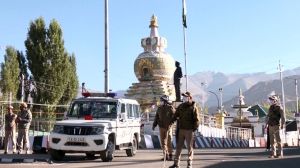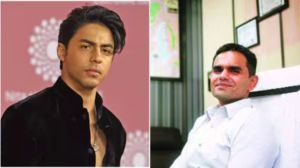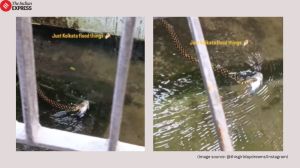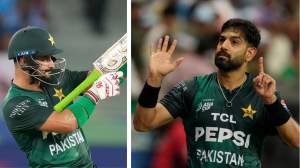Returns from the French connection
India and France begin their post-Pokharan bilateral dialogue this week in New Delhi. The Prime Minister's Principal Secretary Brajesh Mi...

India and France begin their post-Pokharan bilateral dialogue this week in New Delhi. The Prime Minister’s Principal Secretary Brajesh Mishra and the French Special Emissary Gerard Errera will kickstart the first round of what is already being perceived as an emerging special relationship.
This is the second country after the United States that India will be engaging in a strategic dialogue after Pokharan-II. The dialogue with France is expected to provide a counterpoint and a balance to the on-going nuclear negotiations with the United States.
New Delhi is offering to undertake significant and legally binding restraint on its nuclear weapons programme in return for a broader relationship with the great powers, and in particular the lifting of the long-standing Western technology blockade against India.
When India shattered the global non-proliferation regime with its nuclear tests this year, France stood apart from its Western allies. There were no shrill calls for sanctions or punitive measures, nomoves to recall its ambassador: reactions which erupted from other Western capitals. This did not in any way mean that the French condoned the tests. Far from it. But the moderate reaction from Paris was not lost in New Delhi either. When India sent out its envoys to explain its security compulsions for conducting the tests, Paris was the first stop.
Since then there have been contacts at the highest levels. Prime Minister Atal Behari Vajpayee’s only bilateral visit to a P-5 country, (not counting his attendance of the UN General Assembly in New York), has been to France.
The backdrop to this emphathetic response dropped in place in January this year, when despite there being no government in office in New Delhi, President Jacques Chirac decided to go ahead with his visit to India. The French said they were looking at long-term ties with the Indian people.
This sudden "discovery of India" stems also from the French concept of a multipolar world. Increasingly uneasy with a global order where the U.S.plays the solitary gendarme, France is pushing its multipolar framework in which India, China, Russia, Japan, form poles of global influence in conjunction with the US and a united Europe. Chirac’s visit provided the opportunity for a clearing away of the cobwebs.
For French businesses, the lethargic state of Indo-French relations meant they had already missed the first bus into the Indian market, with American, Japanese and South Korean MNCs stealing a march on them.
With India emerging as one of the world’s largest energy consumers and France a leading provider of nuclear technology, energy cooperation has been identified as the engine to drive the relationship forward. French interest in selling nuclear reactors to India is twofold — to sustain its own nuclear industry and to buttress a new strategic partnership with India.
While America has walked away with the cream of the Chinese nuclear market, France now has a chance to make a big breakthrough in India. Just as the U.S. has argued in itsnuclear deal with China, France could easily develop the argument that sale of nuclear reactors to India will benefit efforts to reduce global carbon emissions.
The catch, however, lies in French commitments not to sell reactors to countries like India which reject the NPT and refuse to accept comprehensive international controls over their nuclear programmes.
Chirac during his visit made clear that France is willing to work at a reinterpretation of the requirements of the NPT. Without breaching its NPT commitments, France is willing to show flexibility on safeguards, provided India displays a certain amount of "give" on the kind of controls it is willing to accept. For this, separate expert-level talks are scheduled later to confront the "real intellectual and political problem" of facilitating civilian nuclear cooperation.
India and France share a somewhat similar approach to their nuclear arsenals — emphasising independence and minimum nuclear deterrence, besides being active dissidents in theglobal nuclear order shaped by the United States. In the emerging strategic dialogue, India and France could have a valuable exchange of views on their respective nuclear doctrines.



- 01
- 02
- 03
- 04
- 05




























